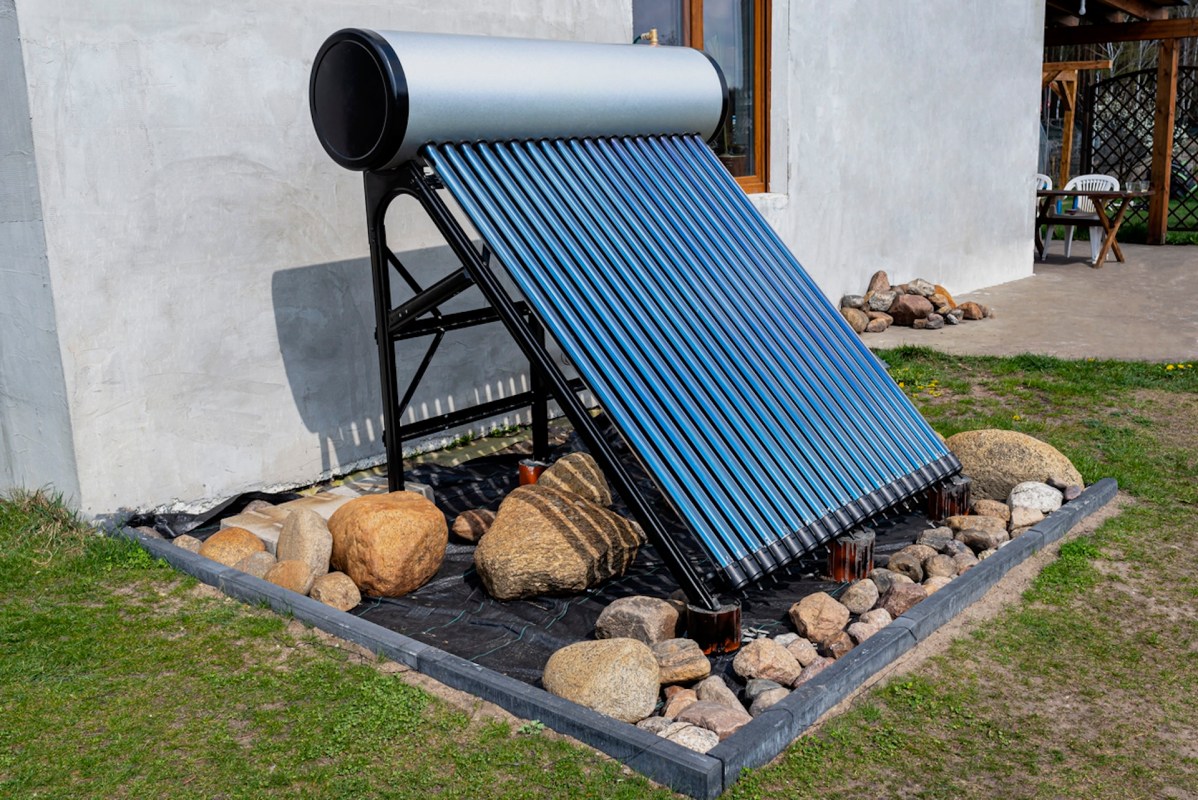When we think about solar panels, we often think about ones on rooftops that provide clean, renewable electricity to a home, helping to cut energy costs and reduce the production of planet-warming gases.
But one type of solar panel that has gone out of fashion might be set to make a comeback, and a Washington Post columnist has been lauding its potential.
Michael J. Coren, a climate advice writer, detailed how a solar thermal water heater was a memorable part of his childhood home in Florida.
Coren said it "looked like a portal into the future," comprising a large black panel with a water tank attached to the back. That might not have been such a far-fetched thought. Indeed, solar panels are increasing in popularity.
According to Pew Research Center, citing data from the U.S. Energy Information Administration, residential solar power installations rose by 34% between 2020 and 2021.
Meanwhile, Pew's own research from January 2022 found that 8% of U.S. homeowners have installed solar panels, with 39% giving serious thought to installing them over the previous 12 months.
Part of the reason for increased uptake is generous federal tax credits introduced by the Biden administration, offering a 30% credit to households that install the clean energy source.
The introduction of the Inflation Reduction Act in 2022, which extended the policy, likely increased the number of households with solar capacity in the following years.
But solar thermal has largely been left behind, despite its popularity in the 1980s and 1990s. Coren cited unskilled installers and poor design as reasons for uptake slowing.
However, manufacturers might be looking into the technology once more, with subsidies from the Inflation Reduction Act making them more attractive.
Coren said solar thermal can convert 60-70% of the sun's energy to heat, and it can bring water to temperatures of 180 degrees Fahrenheit. Relying on the sun rather than the gas typically used to power a hot-water system will slash energy prices and avoid the production of planet-warming pollution.
"We had no trouble with it," Coren's dad told him about the domestic system at their old house. "It was still working when we sold the house 10 years later."
The United States might soon follow countries like Israel, Denmark, and Canada, which are all embracing solar thermal at either a residential or district level. In fact, the market might even be shifting to commercial use over residential, as Martin Morehouse from Sun Light & Power told Coren.
When considering whether solar thermal is right for your home, the Department of Energy has a calculator to help you estimate savings and operating costs. But, in the long term, it should help you to save money in the face of rising energy bills, even with the high cost of a system and the installation required.
Tankless water heaters are another option to save money on water heating prices and to minimize pollution.
Join our free newsletter for easy tips to save more, waste less, and help yourself while helping the planet.









